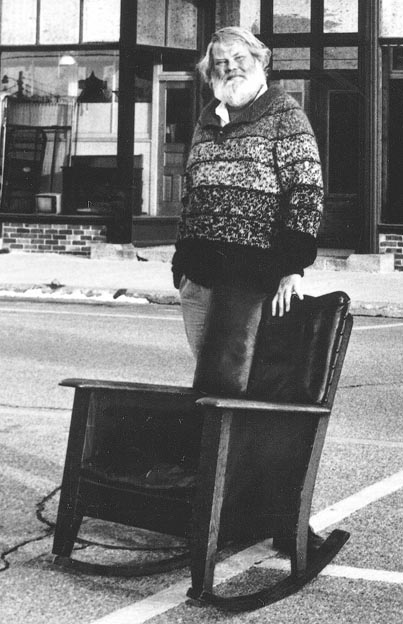“Playing the Black Piano”: Expansive Music
Sam Black reviews Bill Holm's recent book "Playing the Black Piano," which he calls "A magnificent, musical celebration of the unfathomable expanse of the earth and the human mind."

With a vocabulary originating from Minneota, MN, the newest collection of poetry from Bill Holm, Playing the Black Piano (Milkweed Editions, 2004), engages the reader on a journey from eastern China to the Icelandic coast. And without any hesitation, I concur with the author as he notes, the “words start coming / right if you make them every day for fifty years.” (20) This fifty years’ worth of creativity will certainly give pleasure for at least an equal time.
In five powerful sections, Holm offers us the Iceland he loves, a visit to China, a bounty of musical ecstasies, comments on our ironic political world, and a heart-warming final farewell to a close friend.
This collection is notably full of faces. A blond check-out clerk has skin “so pale and translucent the organs within are almost visible.” (7) A cellist in the town of Brimnes “is a big thick fellow with ham fists, / Who looks like a seaman or a deck hand / More used to tubs of fish than cello bows.” (14) A man “who threw nothing away” changed his appearance when “he grew huge as he aged by sporting a fine white mustache, never forgetting a story, and falling in love every day till he was past eighty.” (27) Most memorable is the “Girl Eating Rice—Wuhan 1992,” who cooks rice for the family, then sits to eat her own with all the intensity of a musician plucking a delicate tune. She is somewhere between the age of sixteen and three thousand, and beautiful with every glance, so that even “ the emperor sees her eating rice in the palace kitchen and weeps for his passing life and the misery of his country.” (42)
That is only part of the finesse of these 123 pages of distilled perspicuity. Section five is a majestic eulogy to a young physician and close friend who died in his forty-sixth year. The pain, the denial, the passion of living, the throb of music, the sweetness of dessert, a blend of Magnificat and Whitman, all conclude with a scattering of ashes and plans for a memorial stone. This is an exquisite tribute to a noble spirit. Holm writes, “Still he wants to live, / and about this one last wish, / nothing can be done.” (103)
A major part of my fascination with the poetry of Bill Holm is his broad love and involvement with music, particularly keyboard music. I have to go sit and play what he writes about, or buy it if I don’t have it. And what he writes is true. For Bach, in Iceland, “The whole house grows too tiny for the tune.” (14) Beethoven brings us all “nose to nose with magnitude,” whether in western Minnesota or western Victoria. A Strauss waltz invigorates a Mexican street party, balancing the “Hallelujah Chorus” spouting from a poker machine in South Dakota. Holm compares Franz Liszt and romance at thirty-two and at seventy: “The old Romance sank at the end into a minor chord because, at thirty-two, life is sad—wet and full of possibility. / At seventy, the Romance ends in a glowing major high up at the piano’s summit.” (37) Delightfully, Holm chose to include his 1997 poem, “Playing Haydn for the Angel of Death,” a hypnotic tribute to the clarity and wisdom that only comes with age, repetition, and increased familiarity. “O, the mystery of Haydn is / the great reason for not dying young, / for living rhrough rage and ambition / without quite forgetting their pleasures. . . . Take this advice: toughen up and live.” (30)
This modern day Whitman-filled spirit will catch you up and take your breath away. Holm’s celebration of the enormity of life expands with each reading. Food, weather, vistas, friendships, music, good whiskey, and most of all, well-rounded words offer what truly matters in this life. Playing the Black Piano will resound long after the cover is closed. Reading these poems aloud to friends in a cabin in Isabella, MN, is where I began. Now I keep them on the piano. Thank you, Bill Holm.